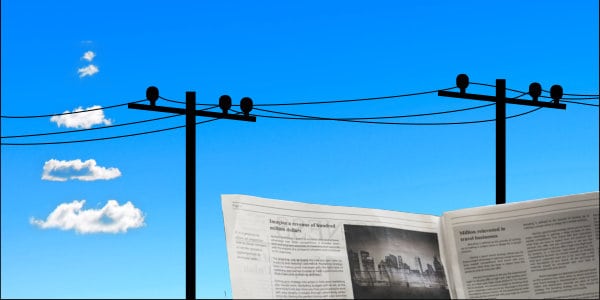If we live long enough, we are in an ideal position to reflect on all the communications miracles that have occurred throughout our life. When I was born (1936) we had long since stopped using smoke signals and drumbeats to communicate to our friends in the next valley. Although communications had not made leaps and bounds by the 1930s, it had made a few highly significant breakthroughs in addition to the printed word, now widespread and in many forms.
The telephone, invented in 1876, and radio, around 1900, were world-class inventions that transformed our world. Quickly becoming necessities world-wide, they definitely were prized devices in my family’s bare-bones, four-room rural home. We had electricity, but not many conveniences in a house without running water, indoor plumbing, or insulation. Our telephone connected us with the outside world, but more especially, to our neighbours. This was wonderfully reassuring as the telephone wires strung aloft on wooden poles along lonely country roads kept us closely connected. It greatly lessened our sense of isolation. Sometimes, looking out over the windswept snow-covered landscape, loneliness crept very close to those who lived a rural existence.
As strange as it may seem to us today, a dour Scottish farmer, Sam McMath, who lived nearby, would not allow a phone in his house during his lifetime. And he insisted that the telephone lines running past his farm be located along the roadside, not on his property. However, in emergencies, he had no qualms about sending his good-natured son to use a neighbour’s phone. This same farmer, determined to resist all things modern, refused to buy a tractor when the iron horse came into general use in our community in the late 1940s. His pig-headed obstinance was the talk of the neighbourhood, behind his back, of course. When he died, his son inherited the farm. Without hesitation he installed a telephone and purchased a tractor.
The magic of radio was an enlightening boost to isolated farming families living in rural Ontario. It certainly brought joy, laughter and excitement into our home. Apart from the noon hour and evening news, a vital part of the adults’ day, there were daily and weekly programs to suit everyone’s taste. I can still recall the opening introduction to The Lone Ranger, a program that my brothers and I hardly ever missed. The Shadow, and The Green Hornet were equally popular in our home, as were the comedy programs, Amos ‘n’ Andy, Jack Benny, and Fibber McGee and Molly.
Available in nearby Cornwall, Ontario, but not used by my family, there was a communications device called the telegraph. This device could send and receive coded messages to and from far-away places. The telegraph office was a popular place for people who needed speedy communications. Incoming telegrams were manually delivered to recipients’ addresses around town. My oldest brother quit school at age 14 to deliver telegrams by bicycle around the city of Cornwall. He went on to spend his whole career in this field, retiring at 65 as a communications supervisor for the CBC.





